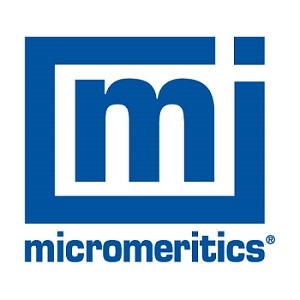Introduction
The AutoChem is a flow-through system designed to characterize catalysts by analyzing their surface activity. It also operates as a basic single-component breakthrough system that permits carrier, preparation, and analysis gas flows. This article discusses how breakthrough analyses can be performed via the AutoChem together with a mass spectrometer.
Experimental
Zeolite 13X was utilized as a standard reference material for carbon dioxide breakthrough evaluation. Figure 1 illustrates the instrument schematic utilized for the breakthrough analysis.
Before the analysis, the sample was heated to 200 °C at a rate of 10 °C/min under a nitrogen gas flow of 20 sccm overnight. The sample was then cooled to the analysis temperature of 30 °C. The mass spectrometer was then switched on as nitrogen gas was flowed through the carrier line.

Figure 1. AutoChem CO2 breakthrough analysis. Image Credit: Micromeritics Instrument Corporation
Prior to breakthrough assessments, the deadtime of the system was determined. Deadtime refers to the time needed for the gas to flow through the system and reach the mass spectrometer.
To determine this, nitrogen was flowed through the carrier gas line at 20 sccm, and helium was flowed through the loop gas line at the same rate. The flows were alternated, and the time was recorded from when the valve was turned on to when the mass spectrometer detected a change in the mass signal. After multiple measurements, the deadtime was established at 14.5 seconds at a flow rate of 20 sccm.
Once the deadtime was determined, the gas flow through the loop was switched from helium to CO2 (20 sccm). After allowing the flow to stabilize for several minutes, breakthrough was initiated by switching on the CO2 flow from the loop. Following the breakthrough measurements, the sample furnace was heated to 200 °C for several hours to confirm the complete desorption of CO2 from the zeolite 13X.
Results
The outcomes of the breakthrough test are displayed below. Zeolite 13X displayed powerful adsorption for CO2 at ambient settings, achieving a capacity of 4.53 mmol/g. Moreover, the breakthrough curve is steep, indicating that there are practically no limitations to mass transfer in the system.

Figure 2. CO2 breakthrough adsorption in zeolite 13X. Image Credit: Micromeritics Instrument Corporation
Conclusions
The AutoChem proved to be an effective unit for conducting simple single-component breakthrough analysis. This was demonstrated by analyzing zeolite 13X, which achieved a CO2 adsorption capacity of 4.53 mmol/g at 30 °C with a flow rate of 20 sccm.

This information has been sourced, reviewed and adapted from materials provided by Micromeritics Instrument Corporation.
For more information on this source, please visit Micromeritics Instrument Corporation.